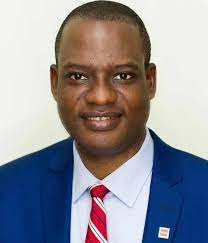The Tinubu-led administration has announced plans to re-introduce the National tax amnesty scheme as part of its fiscal policy reform measures to alleviate the hardships of Nigerians and businesses following the fuel subsidy removal and the new foreign exchange (FX) policy regime.
The Chairman of the Presidential Committee on Fiscal Policy and Tax Reforms, Mr. Taiwo Oyedele, gave this hint during a two-day retreat of the committee in Abuja.
A statement issued by the Director, Press and Public Relations Department of the Ministry of Finance, Stephen Kilebi, indicated that the tax amnesty scheme was among the issues discussed at the meeting and on which decision would be forwarded to President Tinubu for consideration.
Specifically, the spokesman in the ministry quoted Oyedele as saying that the new administration is planning to reintroduce the National Tax Amnesty Schemes in order to cushion the effect of the fuel subsidy removal.
The statement reads: “The Chairman highlighted the deliverables from the committee, which include: optimum taxes; harmonized revenue collection functions; a revised national tax policy; national fiscal framework; preparation of bills for constitutional amendment; revenue optimisation; production of a model template for sub-nationals and establishment of the national tax amnesty scheme.”
The tax amnesty scheme, which was first introduced on July 1, 2017, offers a time-limited opportunity for taxpayers to regularize their tax status relating to previous tax periods and pay the taxes due with certain benefits.
The amnesty started on July 1, 2017, and was to last for nine months, but was extended by the administration then till March 31, 2018.
According to the statement, other expected deliverables from the committee which include optimum taxes; harmonized revenue collection functions are aimed at improving tax administration and revenue with a view to closing the huge lingering yearly revenue-expenditure gaps in federal budgets.




